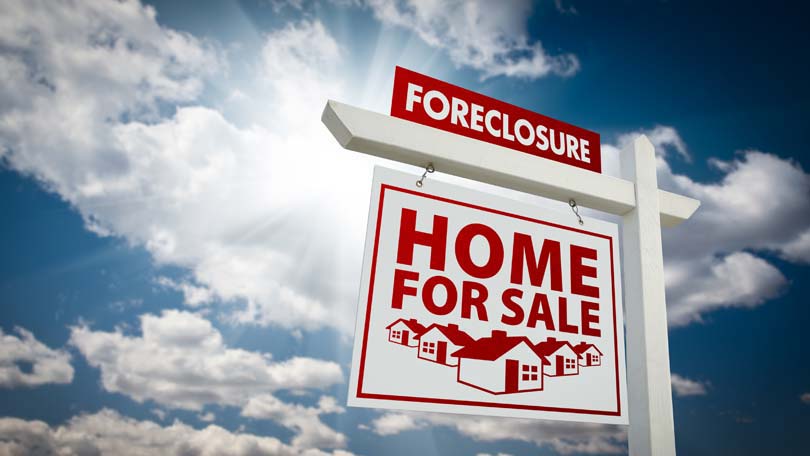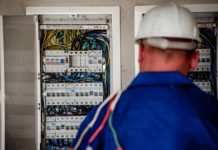
Buying a foreclosure is one way of getting a really good real estate deal. When a piece of property is foreclosed, that means that the house owner has defaulted on mortgage payments and despite a notice of default, is still not able to come up with the payments. His or her house then goes into foreclosure. This means it goes up for sale once all the documents are in order and the new owner takes possession of the house.
In Canada and the United States, there are similar mechanisms for buying a foreclosure but there are provincial and state laws that govern this aspect of real estate. The laws are clear on how to proceed with a foreclosure and people who are interested in buying foreclosed homes for investment purposes must be aware that there are nuances in the laws on a province-to-province and state-to-state basis.
Buying a Foreclosure in Canada
There are two kinds of procedures that govern foreclosures in Canada. The first one is called the Judicial Sale. Judicial Sale means the court is involved. Given that the foreclosure is under the court’s jurisdiction, a lender must file a case in court against the defaulting borrower to seek permission to sell the property. The following Canadian provinces follow the Judicial Sale of a foreclosure:
- British Columbia
- Alberta
- Saskatchewan
- Manitoba
- Quebec
In the province of Nova Scotia, it is called Mortgage Foreclosure but the procedure is still the Judicial Sale because the court is involved.
The second type of foreclosure procedure is the Power of Sale. Unlike the Judicial Sale, Power of Sale can proceed without the intervention of the courts. The lender simply takes the necessary steps to sell the property if the borrower defaults. This right to foreclose on the property is covered and stipulated in the loan or mortgage documents.
These provinces use the Power of Sale type of foreclosure:
- Newfoundland
- Ontario
- New Brunswick
- Prince Edward Island
Note however that even if some provinces fall under Judicial Sale or Power of Sale, the procedures vary from province to province. Certain steps have to be followed in a specific order before the sale of the foreclosed property can be authorised.
Buying a foreclosure in the US
In some states of the US, there is what you call the pre-foreclosure stage and the foreclosure stage. Some states use the Judicial Method and others use the Non-Judicial Method. Still others use both types of procedures.
Real estate investors in the US who specialize in pre-foreclosures and foreclosures find that this particular domain in real estate is the most exciting for them. They know that banks usually don’t like to keep foreclosed properties on their books too long and therefore sell them for a song. It’s not that easy, though. Be careful when you’re buying a foreclosure. You have to carry out due diligence on the property to make sure it is free and clear of any liens or lawsuits.
What does a zealous real estate investor do when he dabbles in pre-foreclosures and foreclosures? One thing to bear in mind is that investors keep their antennas up when it comes to city hall proceedings. It could be the town registry or the county clerk or whatever municipal name it’s given. When an individual defaults on a mortgage payment, he receives a Notice of Default. This does not mean that he has lost his house.
When a Notice of Default is received, lenders are usually willing to negotiate with the houseowner so a payment could be made. Depending on which state you live in, this Notice is good for 30-90 days, which means the defaulting party has up to 3 months to clear the matter (it is shorter in some states).
If after 90 days the loan still has not been paid, steps are taken to send the homeowner a Notice of Trustee Sale. This means he is about to lose his house. A date is scheduled for bidding at the courthouse, and this is how you buy a foreclosure in the US.
Savvy real estate investors will actually act before the Notice of Trustee Sale. They come into the picture when they see in the public records that a Notice of Default has been sent to the property owner. What do they do next?
The investor calls the property owner and offers to buy his property before it goes into foreclosuree. He offers an amount of money to the houseowner, knowing full well that the poor houseowner is at his wits’ end because he’s been served notice, and may agree to sell his house to the investor at a ridiculously low price – just to avoid having to face the court.
In some cases, an investor will even allow the houseowner to remain in his house. The investor simply charges him a monthly rent.
Buying a Foreclosure: Take a Closer Look
Buying a foreclosure may be one of the ideal ways to make money in real estate but the classic “buyer beware” principle applies. To get a decent return on your investment, make sure that the property is not a doghouse or an outhouse. If the homeowner has defaulted a few times, that means he did not have the financial capability to meet payments, and thus would be equally restricted in maintaining the house.
If the house is in disrepair but is in a good location, investors may be able to drive a good bargain. Be wary of properties in deteriorating neighborhoods. No amount of renovation would let you recoup your investment 100%. Or if you do, it may take a long, long time.
The extent of renovations may also go beyond the budget you have set aside for this purpose, because remember, when a house goes into auction, it has not undergone any inspection. How comfortable are you about buying property that has not been inspected?
Also, it is a smart idea to be aware that not all foreclosure prices are bargain prices.
Ready to Buy a Foreclosure?
Before you do, get access to reputable databases or foreclosure notice services that run an updated list of pre-foreclosures and foreclosures in your region. Some services provide this service for a fee, and it churns out information on all Notice of Default, Notice of Trustee Sale and REOs (real estate owned by banks; that is, properties repossessed by the bank).
If you insist on buying only foreclosures, we mentioned due diligence the first time but we’ll mention it a second time. Make sure you’ve got the documentation in order; otherwise get a professional to help you.
Investors agree that the best approach to buying a foreclosure is to do it with a private homeowner. The court hassles don’t bog you down and as long as the seller and buyer agree on the terms, everyone should come out a winner. Well, the houseowner will probably comes out less of a winner because he’s selling his house for under market value – but at least selling to a private investor takes away the burden of a judicial proceeding.
Foreclosures by auction are best left to experienced investors. You can still get into the auction game, but do roll up your sleeves and start doing your homework before you venture out into your first auction with your checkbook!





